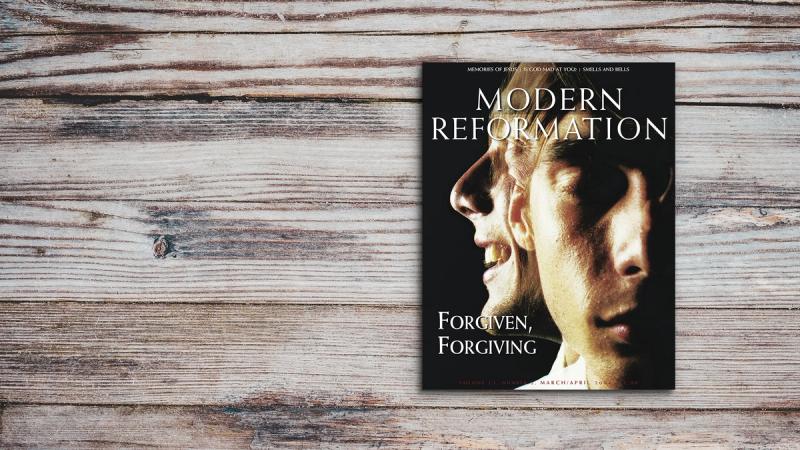Precious few seem alarmed by the amount of pain and anger that has emerged over the last thirty years in the hearts of adult children of divorce. In the United States alone, one out of every four adults under the age of forty comes from a broken family. No matter what was said by our parents about love and commitment in marriage, what many of them modeled was an unwillingness to forgive-not so much the sins of infidelity, violence, and drug use, but more common faults like neglect and lovelessness.
In The Unexpected Legacy of Divorce-The 25-Year Landmark Study, Judith Wallerstein argues that because adult children watched their parents refuse to reconcile, they fear a future mate will refuse to reconcile with them. As a result, many either never marry or live with a number of people before they do. She also reports that teens from broken homes engage in sexual activity, drugs, and alcohol at a higher rate than their peers from intact families; that divorced parents focus on themselves, their new careers, and new lovers rather than on their children; and that very young children of divorce feel lonely, scared, and uncertain about the future.
Yet the biggest problem may be that these children turn into adults who, like their parents, are unforgiving. National studies now warn that the unresolved anger that children carry with them out of divorce may underwrite an adult generation’s refusal to care for their parents as they age. If hell has no fury like a woman scorned, it may be that anger has no apathy like children of divorce.
I, too, am an adult child of divorce-well, almost. Right before my parents’ divorce was final, my depressed mother locked herself in the bathroom and shot herself in the head. I grew up with my dad and a stepmother who arguably neglected me in various ways. My three brothers and I disappeared into a cloud of church activities and school achievements, but during college I came home one semester because of a financial setback. I was lonely and afraid, bulimic and overwhelmed with a sense of personal failure; but I had my undiscovered rage to keep me company.
Thank God a dear friend wrote saying that unless I asked my stepmom and dad to forgive me for the lack of love I had shown them, I would never be free. I was incensed! I had expected her to commiserate and sympathize with my plight, but instead she was rebuking me.
After reading and rereading her letter my pride got the best of me and I decided it was “right” and “charitable” for me as a Christian to forgive them (even though this was not what my friend was urging me to do). I then tried to stand up to go talk to them, but I couldn’t. My own hate had nailed me to the ground.
I was like the servant in Matthew 18 who started choking those who owed him. The debts against him were real and probably deeply felt. The servant could rightly accuse his debtors, just as Satan, the accuser, is right when he accuses us of various sins. Pathetically, though, the servant lacked the internal power to pardon. He was a prisoner of his own nature, a child of wrath, a son of disobedience, as Paul puts it in Ephesians 2. His natural inclination to judge and to love conditionally and self-protectively kept him from showing mercy. Until he seeks forgiveness for that, he will live in torment and eventual torture forever.
Slowly, on the floor in my room, I began to recall verses that I didn’t need before-verses about being an enemy of God when Christ reconciled me to him, about needing Christ to forgive me for my cruelties when I had no intention or ability to ask for forgiveness. I began to realize that it wasn’t my mom, dad, or stepmother who needed me to pardon them. I needed to know how much I had been pardoned.
I did ask for forgiveness that day. I also gave it, but that was the day I began to realize that the power to forgive is nothing natural. It is supernatural, as supernatural as understanding my own need for forgiveness, as supernatural as my own salvation.
In Steven Spielberg’s Schindler’s List, Oskar Schindler tells Nazi Commandant Amon Goeth, while Goeth is in a drunken stupor, that true power is the ability to pardon. Goeth likes to shoot workers in the concentration camp from his balcony at random, killing them for walking, breathing, or carrying out orders in a manner that doesn’t please him. After sobering up, Goeth points his finger in front of a mirror and practices saying, “I pardon you … , I pardon you ….” He later pardons a boy who makes a mistake and then waves him away; but in a matter of minutes, he is drawn back to his powerless nature and shoots the boy in the back.
Needless to say, in my ongoing pilgrimage to pardon, unforgiveness along with its children—rage, entitlement, blame, depression, cynicism, apathy, and terror—knock loudly on my door, particularly during holidays or at any significant rite of passage. But just when I am about to let them in, the Lord graciously gives me a glimpse of the insane judge who paces back and forth on the balcony of my soul—the “me” he is slowly transforming into the likeness of his image—even as he also gives me a glimpse of the One who is seated upon his mercy seat who alone has the power to pardon and the righteousness to judge, and I am undone. At least for a little while.





